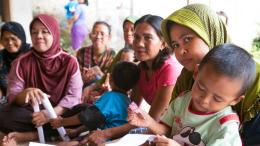Multilateral interventions through United Nations Peace Support Operations (PSOs) are key international responses in contexts where there is prolonged intra-State and inter-State armed conflict. Understanding the effectiveness of PSOs, in reducing both national conflict and the spread of conflict across national borders, is critical in improving the capacity of States and international actors to tailor targeted response plans and reduce the risk of violence. Recent years have seen rapid development of new technologies, such as machine learning models that enable the identification of informative patterns from large amounts of information.
This Working Paper aims to cover a critical methodological gap by testing the utility of machine learning in identifying potential correlations between PSO personnel characteristics, and national and cross-border stability dynamics. Experiments examine PSO demographics and conflict in four case studies: the Central African Republic (CAR), the Democratic Republic of Congo (DRC), Mali, and South Sudan. Quantitative data relating to PSO personnel characteristics (gender, region of origin, and status – “diversity indices”) were sourced from the United Nations Peace and Security Data Hub, while conflict location/intensity information was sourced from the Armed Conflict Location and Event Data Project (ACLED).
Quantitative data was analysed through machine learning techniques, while a specifically selected expert focus group was convened to critically evaluate data representativeness and assess findings. Region of origin was observed as the only demographic feature that was influential across all four case studies. However, its impact must be assessed through an understanding of the case-specific international political dynamics and operational capacity. Gender appeared to impact cross-border conflict in Mali and national conflict in DRC and South Sudan, both of which also had higher numbers of women in leadership positions. Finally, professional status (i.e., uniformed vs civilian) was correlated to both types of conflict in Mali and DRC, but not in CAR and South Sudan.
Read "Diversity Among Peacekeepers: Who Is Involved in UN Peace Support Operations and How Does It Matter?" here.
Suggested citation: Chido Mutangadura-Yeswa, Eleonore Fournier-Tombs and Melih Kandemir. Diversity Among Peacekeepers: Who Is Involved in UN Peace Support Operations and How Does It Matter? : UNU-CPR, 2024.



